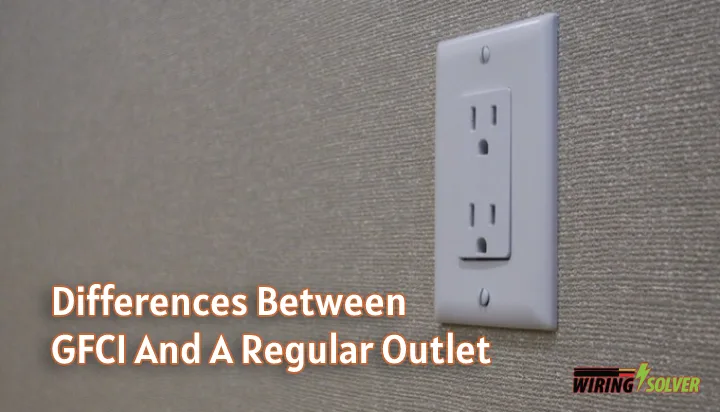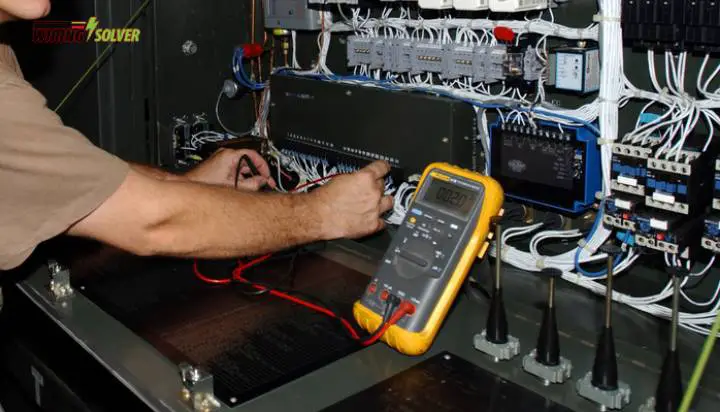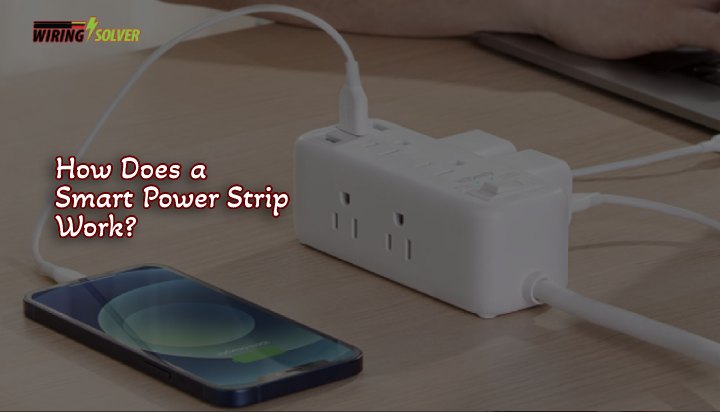Extension cords provide a convenient way to extend power to devices and appliances. However, is it safe to leave an extension cord plugged in overnight or for an extended period of time?
In short, it is not safe to keep an extension cord plugged in permanently. As this could lead to overheating and other electrical mishaps. There are several safety measures that you have to maintain to ensure the safe use of an extension cord.
This article will explore the safety concerns surrounding the use of extension cords and provide practical tips for their safe use. This guide will also help you make informed decisions about the use of extension cords.
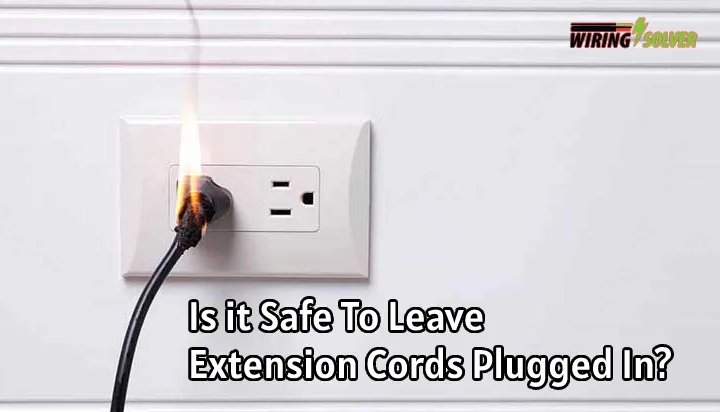
Is it Safe to Leave Extension Cords Plugged in?
Let’s start off by tackling our main concern for today, can you leave the extension cord plugged in? Extension cords help you provide electricity in hard-to-reach places, but leaving it plugged in is not the safest choice.
You should always unplug your extension cord when you are not using it, or else it might result in an accident. Although these accidents don’t usually take place, it’s still best to stay safe.
That leads us to the question, can extension cords cause a fire? It has been found that extension cords were the cause of many house fires, but if used with proper precaution, they don’t possess such risk.
Safety Reminders When Using Extension Cords
There are many things you must look out for and must avoid when using an extension cord. One of the first things you should avoid is trying to plug a 3-prong extension cord into a 2-prong power outlet by removing the ground pin.
This is very dangerous because then your extension cord won’t be grounded, and if it isn’t double insulated, then there is a high possibility you will get an electric shock. Wiring an extension cord to an outlet is also possible.
Although one of the major conveniences the extension cord gives us is that it allows us to use multiple devices at once, if you can, you should avoid plugging more than one appliance with one cord.
Additionally, don’t plug in extension cords with each other to increase the length; this also possesses risks.
If you were wondering, if can you leave extension cords outdoors in the rain, then you’ll be glad to hear that you can!
However, only weather-insulated extension cords that were designed for outdoors can be used outside; using indoor extension cords outdoors is very risky.
It is very easy to get your extension cord tangled or coiled, and this isn’t safe at all because this could lead to the cord getting damaged, and if there is any contact with the bare wire of the cord, it could lead to you getting an electric shock.
If you touch your extension cord, and it feels hot, immediately turn off the switch and unplug the cord. Overheating extension cords are very likely to burst into fires.
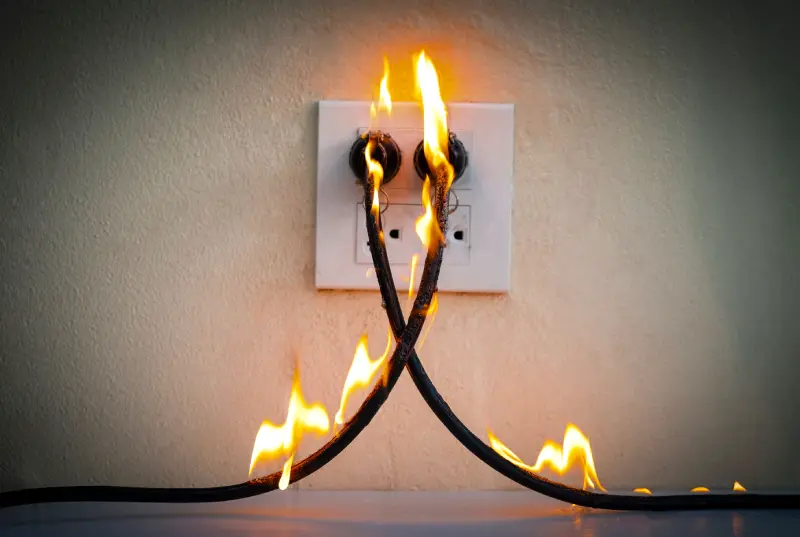
Choosing The Right Extension Cord
For safety, you must purchase an extension cord that fits your needs perfectly. There are many variations in extension cords, from different wattage ratings to different lengths.
The first thing you have to do when buying an extension cord is checked the cord’s gauge, wattage rating, and amperage, and then check if it is suitable for your appliance.
Using an extension cord that has a lower rating than your appliance will cause the cord to overheat and consequently burst into flames.
You should consider the length of your cord when buying it to make sure it is long enough to make things convenient while also ensuring that the length is suitable for your appliance’s wattage rating since the longer the wire is, the lower current it can handle safely.
As we have mentioned before, if you are using an extension cord outdoors, please ensure that it is weather insulated since using indoor extension cords outdoors can cause accidents.
It’s also better to buy a 3-prong extension since it has the ground wire, which prevents anyone from getting an electric shock. Furthermore, you should buy extension cords that are double-insulated for extra safety.
The Importance of Unplugging Extension Cords
Leaving extension cords plugged in can pose a significant safety hazard, and it’s important to understand why.
There are several reasons why unplugging extension cords is crucial, and they all relate to the risk of fire and other electrical hazards.
One of the biggest risks of leaving extension cords plugged in is the possibility of overloading the cord.
If you have too many appliances or devices connected to a single extension cord, it can become overloaded and potentially start a fire. The more devices that are connected to the cord, the greater the risk of an electrical overload.
Another risk associated with leaving extension cords plugged in is the risk of electrical shock. If the extension cord is frayed or damaged, it can pose a risk of electrical shock to anyone who comes into contact with it.
Additionally, if the extension cord is placed near water, it can become a hazard due to the risk of electrical shock from the water.
Lastly, leaving extension cords plugged in can also pose a fire hazard. If the cord is placed near flammable materials such as curtains or paper, it can potentially start a fire if it overheats
And if the cord is damaged, it can spark and ignite any nearby flammable materials.
It’s important to take the safety of extension cords seriously and unplug them when they’re not in use. This can help to prevent overloading, electrical shock, and fire hazards.
It’s also a good idea to regularly inspect your extension cords for signs of damage or wear, and replace them if necessary.
By taking these simple steps, you can help to ensure the safety of yourself and others when using extension cords.
Summary
In conclusion, the use of extension cords can be convenient, but it is important to use them safely to avoid potential dangers. It is essential to choose the right type of extension cord for your needs, avoid overloading the cord, and never use damaged or frayed cords.
By taking the necessary safety measures and being mindful of the potential dangers associated with extension cords, you can make the most of these useful electrical devices without putting yourself or others in harm’s way.

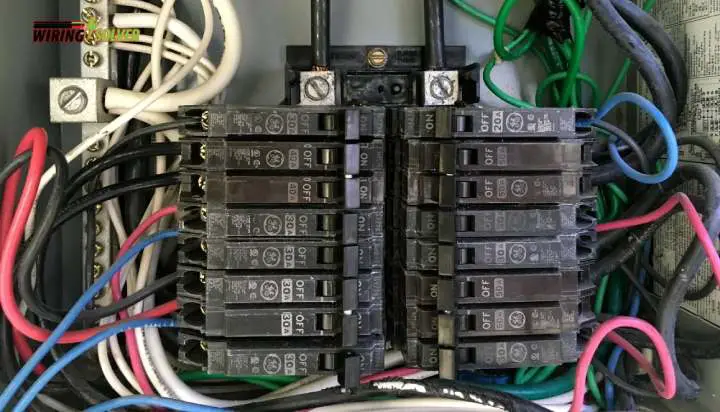
![What Is A Conductor Of Electricity? [Explained]](https://wiringsolver.com/wp-content/uploads/2021/12/What-Is-A-Conductor-Of-Electricity.jpeg)
![Why Does My Neutral Wire Have Voltage? [Answered]](https://wiringsolver.com/wp-content/uploads/2022/04/Why-Does-My-Neutral-Wire-Have-Voltage.jpeg)
